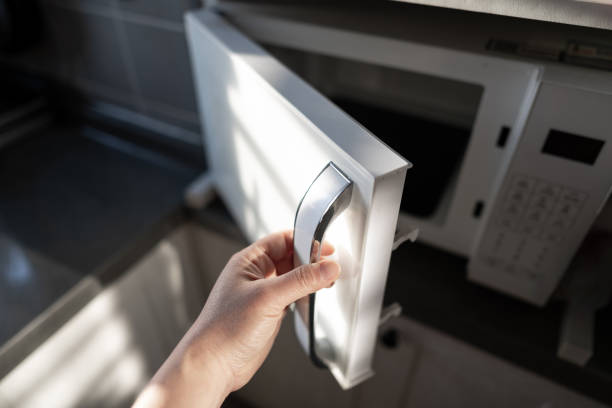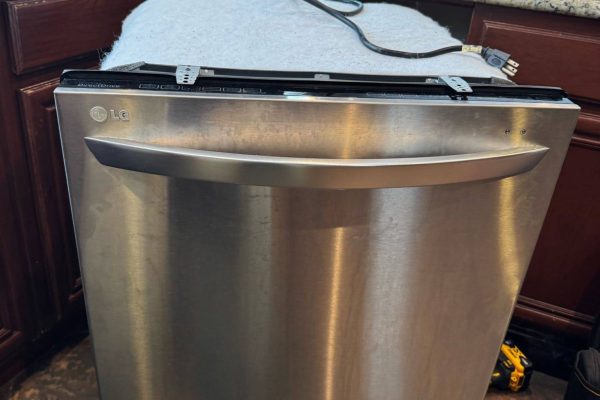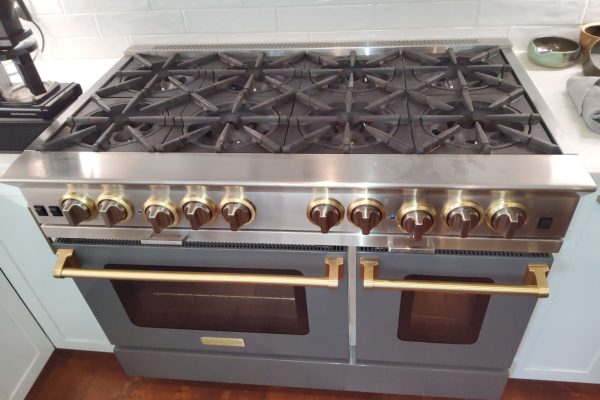Temperature and humidity sensors are integral components of modern microwave ovens, crucial in ensuring precise cooking and reheating capabilities. When these sensors encounter damage or malfunction, it can lead to various issues affecting the oven’s performance. Understanding the role of these sensors, identifying signs of damage, and knowing how to address these problems is essential in maintaining the efficiency and functionality of the microwave oven.
The Role of Temperature and Humidity Sensors in Microwave Ovens
Temperature and humidity sensors in a microwave oven serve several critical functions:
Precision Cooking: These sensors gauge the internal temperature of the food being cooked or reheated, ensuring even cooking and preventing overcooking or undercooking.
Humidity Control: They detect moisture levels inside the oven, allowing the appliance to adjust cooking times and power levels accordingly for optimal results.
Safety Measures: Sensors help prevent overheating by regulating the microwave’s power output based on the detected temperature and humidity levels.
Common Issues Arising from Sensor Damage
Several factors can contribute to damage or malfunction of temperature and humidity sensors in microwave ovens:
Physical Damage: External factors such as impact or mishandling can lead to physical damage, affecting the sensors’ accuracy or functionality.
Moisture or Grease Buildup: Accumulation of moisture, grease, or food debris on the sensors can interfere with their ability to accurately detect temperature and humidity levels.
Electrical Faults: Overvoltage, power surges, or electrical malfunctions within the oven can damage the sensors, affecting their performance.
Identifying Signs of Sensor Damage
Recognizing indications of damaged or malfunctioning sensors can aid in diagnosing problems:
Inconsistent Heating: Food being cooked unevenly or experiencing irregular heating patterns might signify sensor issues.
Failure to Respond to Settings: The oven might not respond correctly to temperature or power level adjustments, indicating sensor malfunction.
Error Messages or Codes:Some microwave ovens display error messages or codes that point to sensor-related problems. Consult the user manual for information on these messages.
Unusual Noises or Smells: Abnormal noises or unusual smells emanating from the microwave while in operation might indicate internal issues, including sensor damage.
Addressing Sensor-Related Problems
Resolving issues related to damaged temperature or humidity sensors often requires professional intervention:
Professional Inspection: Engage the services of certified technicians or microwave repair specialists to diagnose and repair sensor-related problems.
Cleaning and Maintenance: Carefully clean the interior of the microwave, including the sensor areas, using mild solutions and soft materials to remove any buildup of debris or moisture.
Replacement of Sensors: If the sensors are irreparable or severely damaged, replacement might be necessary. Professional technicians are equipped to safely install new sensors.
Preventive Measures and Maintenance
While sensor malfunctions may sometimes occur unexpectedly, preventive measures can help maintain their functionality:
Regular Cleaning: Routinely clean the interior of the microwave to prevent the buildup of grease, moisture, or food particles that could interfere with sensor performance.
Proper Usage: Adhere to manufacturer guidelines regarding microwave usage, avoiding overloading, overheating, or using unsuitable containers inside the oven.
Avoiding Physical Impact: Handle the microwave oven with care to prevent physical damage to internal components, including the sensors.
Surge Protection: Use surge protectors or voltage regulators to safeguard the microwave from electrical fluctuations or power surges that could damage sensitive components.
Temperature and humidity sensors are vital components of microwave ovens, ensuring precise cooking and reheating capabilities. Damage or malfunction of these sensors can lead to issues such as uneven heating, incorrect temperature readings, or failure to respond to settings. Recognizing signs of sensor damage, conducting regular maintenance, and seeking professional assistance when needed are crucial steps in addressing these problems.
Engaging certified technicians for inspections, repairs, or replacements ensures the microwave operates efficiently and safely. Implementing preventive measures, following manufacturer guidelines, and maintaining proper usage practices contribute to prolonging the lifespan and optimal performance of temperature and humidity sensors in microwave ovens. Understanding the significance of these sensors and taking proactive steps to address potential issues is essential in ensuring a reliable and efficient cooking experience with your microwave oven.
Our services are your reliable way to solve problems with household appliances! If your appliances require repair, don’t worry – contact Oceanside Appliance Service Center and we will help you forget about any inconvenience.
Our company has many years of experience in repairing household appliances of various brands and models. Our team of highly qualified technicians has deep knowledge and experience in working with refrigerators, washing machines, dryers, dishwashers, stoves, ovens and other devices.
We guarantee a professional approach to each task and the use of only original spare parts for repairs. Restoring your household appliances to optimal condition is our main goal.
Contact us


